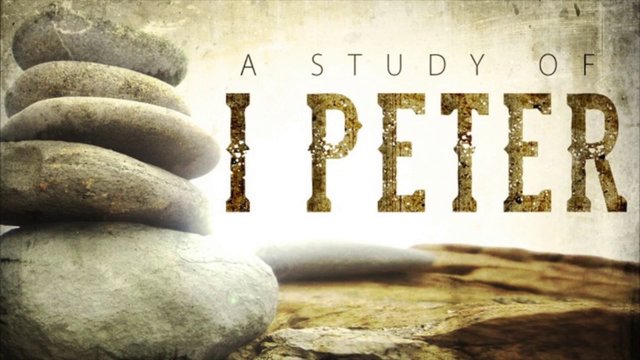Tonight, we are discussing 1 Peter 4. In vv. 12-19, Peter summarizes and recapitulates his primary lesson on suffering and self-control that began with 2:11.
Suffering and Glory: (vv.12-16)
In these verses, Peter directly links suffering and blessedness. In the Sermon on the Mount, Jesus says “Blessed are you when men revile you and persecute you and utter all kinds of evil against you falsely on my account. Rejoice and be glad, for your reward is great in heaven.” Matt. 5:11-12. This is Peter’s teaching here.
First tells his audience that suffering will come, but that this suffering will have great benefits. First, suffering proves the reality of your faith. Peter uses the imagery of a “fiery ordeal” which is to test and to purify precious metals. See, Wis. 3:5-6, Prov. 27:21. And so it is with suffering. Second, Peter reminds his audience that is suffering, we suffer as Christ suffered and share in that suffering.
Although suffering is the present reality for Peter’s audience, pay attention to how Peter describes how they should react to the suffering. Peter calls his suffering audience “beloved” – Gk. agapetos from the Gk. agape – the object of divine love. They are to “rejoice” and to “rejoice and be glad” in their trials. They are “blessed” (the same word Jesus uses in the Beatitudes). And they share in “Christ’s glory” and the “spirit of glory” rests upon them. Peter’s call is not simply to endure and survive suffering but to almost welcome it.
Escatology: (vv.17-19)
For Peter, the present suffering leads to rejoicing and glory, because the present suffering is the beginning of the end. This suffering is a reminder to his audience that God is beginning his judgment of the world, and that this judgment begins with the household of God first. This is very similar to John’s vision in Revelation – it is the saints who, like Christ, suffer first. But like John’s Revelation, Peter’s teaching is the same – the suffering has a purpose and the suffering will end with the saints partaking of God’s glory.
Peter ends this short summary of his lesson by once more directly tying Christ’s suffering and persecution with his audience’s suffering and persecution. Peter writes: “Therefore, let those who suffer according to God’s will do right and entrust their souls to a faithful Creator.” v.19. This concluding statement mirrors Jesus’s last words in Luke: “Then Jesus, crying with a loud voice, said, ‘Father, into thy hands I commit my spirit!’ And having said this he breathed his last.” Luke 23:46. The word for “entrust” in Peter and “commit” in Luke is the same Greek word paratithemi. Therefore, just as Jesus entrusted himself at his death to God, so Peter is telling his audience that they are to do likewise.
Dinner is at 6. The menu is shrimp pasta salad. Discussion at 6:45. Compline at 8. Hope to see you here!
For as we share abundantly in Christ’s sufferings, so through Christ we share abundantly in comfort too. If we are afflicted, it is for your comfort and salvation; and if we are comforted, it is for your comfort, which you experience when you patiently endure the same sufferings that we suffer. Our hope for you is unshaken; for we know that as you share in our sufferings, you will also share in our comfort.
2 Corinthians 1:5-7


Pingback: 1 Peter 5 – Church Leadership – Ancient Anglican